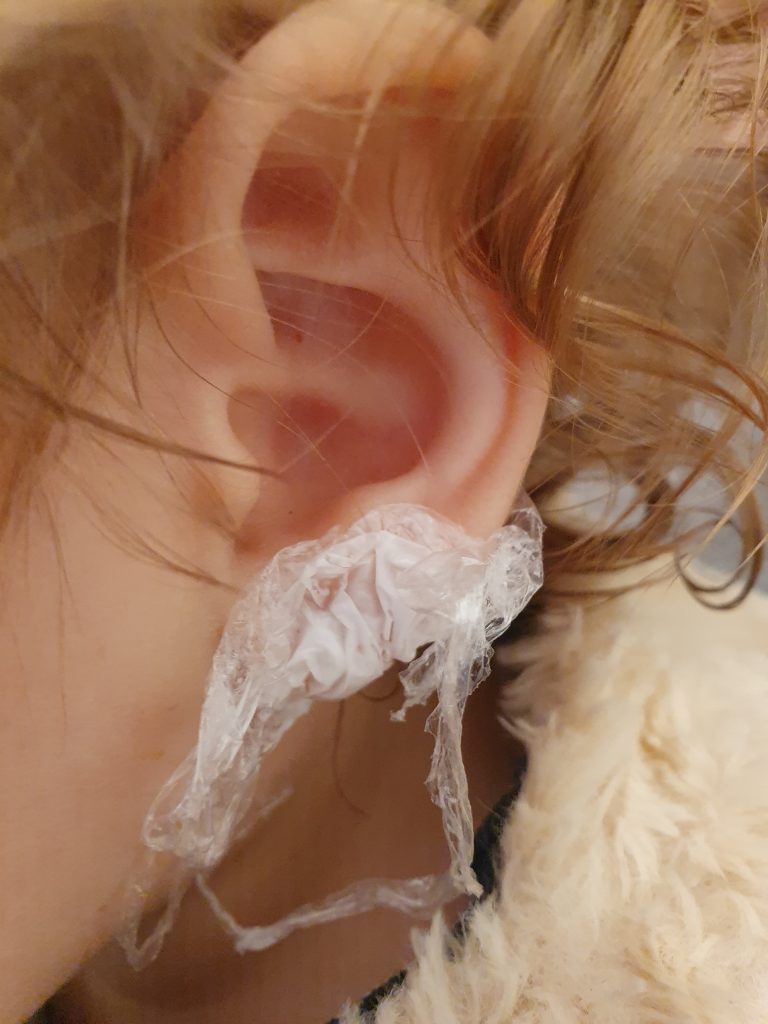The Controversy & Ethics Surrounding Ear Piercing in Babies and Toddlers
Estimated reading time: 7 minutes
Ear piercing in infants has been a cultural practice for centuries, with proponents and opponents expressing varying views on its appropriateness. The decision to pierce a baby’s ears is deeply personal and often influenced by cultural, religious, and familial factors. Let’s explore the different perspectives on piercing babies’ ears. Providing a well-rounded understanding of the debate and the ethics of baby ear piercing.

Cultural and Familial Traditions:
Many families view ear piercing as a cultural or familial tradition, often passed down through generations. In some cultures, piercing a baby’s ears is seen as a rite of passage or a symbol of cultural identity. Families that hold these beliefs may choose to pierce their infants’ ears shortly after birth as a way of honouring their heritage. Other cultures wait until much later as having your ears pierced is considered a more adult thing. In the UK, many parents will take their children to get pierced at the end of year 6.
Respect for cultural diversity and sensitivity to cultural practices are important considerations in discussions about baby ear piercing. For many communities, ear piercing holds cultural significance and is deeply ingrained in traditions and customs. Criticising or condemning these practices without understanding their cultural context can be perceived as ethnocentric or culturally insensitive.
Religious Considerations:
Religious beliefs can significantly impact the decision to pierce a baby’s ears. Some religious traditions have specific rituals or ceremonies associated with ear piercing. Others may discourage or prohibit the practice altogether. Families often consult religious leaders and adhere to specific guidelines within their faith when deciding whether or not to pierce their baby’s ears. When we have a family that comes as part of their religious beliefs, we need be informed ahead of time. We can then then comply on the piercing day with the correct ear piercing process.
Ethical Concerns of Baby Ear Piercing:
On the opposing side of the debate, there are medical and ethical concerns associated with piercing infants’ ears. Critics argue that subjecting a baby to the pain and potential risks of infection is unnecessary. We practice painless ear piercing in our clinic.
Infants may not have the ability to consent to the procedure, raising ethical questions about bodily autonomy. Some healthcare professionals recommend waiting until a child is old enough to express their own desire for ear piercing. Allowing them to participate in the decision-making process.
We are of the opinion that once a child is old enough to communicate their feelings, they need to be prioritised in the decision making process. You can read our negative reviews that we “don’t know what we’re doing” because we have shown parents the door when the child made it clear they didn’t want to have their ears pierced. We are ok with that, in fact, proud!
Parental Autonomy vs. Child Autonomy:
One of the central ethical dilemmas surrounding baby ear piercing is the tension between parental autonomy and child autonomy. Parents have the legal authority to make decisions on behalf of their children, including decisions about their appearance. However, some argue that children should have the right to bodily autonomy and self-determination, which includes the right to decide whether or not to undergo cosmetic procedures like ear piercing.
Waiting until the child is old enough to consent:
Whilst this sounds like a good idea on the surface, we also need to be aware of the downside of leaving it until the child is older. We see children with a huge amount of anxiety coming in for ear piercing. This anxiety primarily comes from her school friends telling her how “painful” it was, how they “nearly died” from the pain and could not “sleep for days” post the piercing. By the time they get to Lorena they’re are an axious mess. They don’t believe when she promises that it will be pain free and the next hour is full of dread and anxiety. Not to mention the emotional build up the day.
Also, we need to consider that the older the child gets the higher the chances of complications such as infections. Parent’s tend to be under the impression that an older child can look after their piercing. Please consider the general state of the average 13 year old’s bedroom before placing this responsibility on their child. Lorena is passionate about this point and she equates it to a parent finally allowing a child to have a pet but only if she agrees to do 100% of the care of that pet. In other words, setting up the child to fail…because…she’s…a child…unable to keep her promise.
Teens face a different type of problem. Having waited so long to have their ears pierced they want to change their earrings as soon as possible . Ensuring an infection to the area. Sometimes they will exchange earrings with their friends at school straight from one ear to the other. Every single time that we have had a complication with one of our piercings (because we want to know immediately and see you if something goes wrong regardless of how much time has passed) the child has walked in with a different, and/or dirty earring on.
Practical and Medical Considerations of the ethics of Baby Ear Piercing:
Practical considerations, such as hygiene and aftercare, also play a role in the debate. Infants require meticulous care to prevent infection, and parents must commit to cleaning the pierced ears regularly.
Additionally, concerns about potential allergic reactions to certain metals used in earrings may influence the decision-making process. What we do know is that infections among infants are rare whilst on older children the infection rate is as much as 50%. This is because parents do the aftercare rather than leave it to an older child. Also, infants tend to not play with their ears therefore keeping bacteria at bay.
In case of infections, antibiotics is the only way to fight the infection. The ear is an area of the body that doesn’t fight off infection on it’s own so a prescription from your doctor is the only way to fight it.
The Importance of Informed Consent:
One common thread in the discussion is the importance of informed consent. Regardless of cultural, religious, or familial traditions, advocates for waiting until a child can express their own wishes argue that individual autonomy should be respected.
Allowing the child to participate in the decision-making process when they are older may foster a sense of ownership over their body. Cultures that pierce as an infant argue that it’s only one of many decisions that the parents make for this children. Doing it young has huge benefits with future possible complications. We have made the decision to not pierce a child that says NO or shows signs of fear.
Making the decision to pierce your baby or not:
The debate surrounding ear piercing in infants is nuanced and multi-faceted. Cultural, religious, and familial traditions often clash with medical and ethical considerations. Ultimately, the decision to pierce a baby’s ears is a personal one that falls on the parent. It should be made with careful thought and consideration of the child’s well-being. As societal perspectives evolve, conversations around informed consent and bodily autonomy will likely continue to shape the way we approach this age-old practice. Ultimately, this is a personal decision made by the child’s family. Along with the piercer’s responsibility to have the child’s best interest at heart. Sadly, we have seen in our practice that some parents have other priorities above their child’s.
We take ear piercing very seriously. We use numbing cream to make the child have a pain free procedure that both parents and child can enjoy. You can call us on 0800 0029696 and you can book online HERE. You can book a free video consultation if you wish to speak to Lorena directly.

